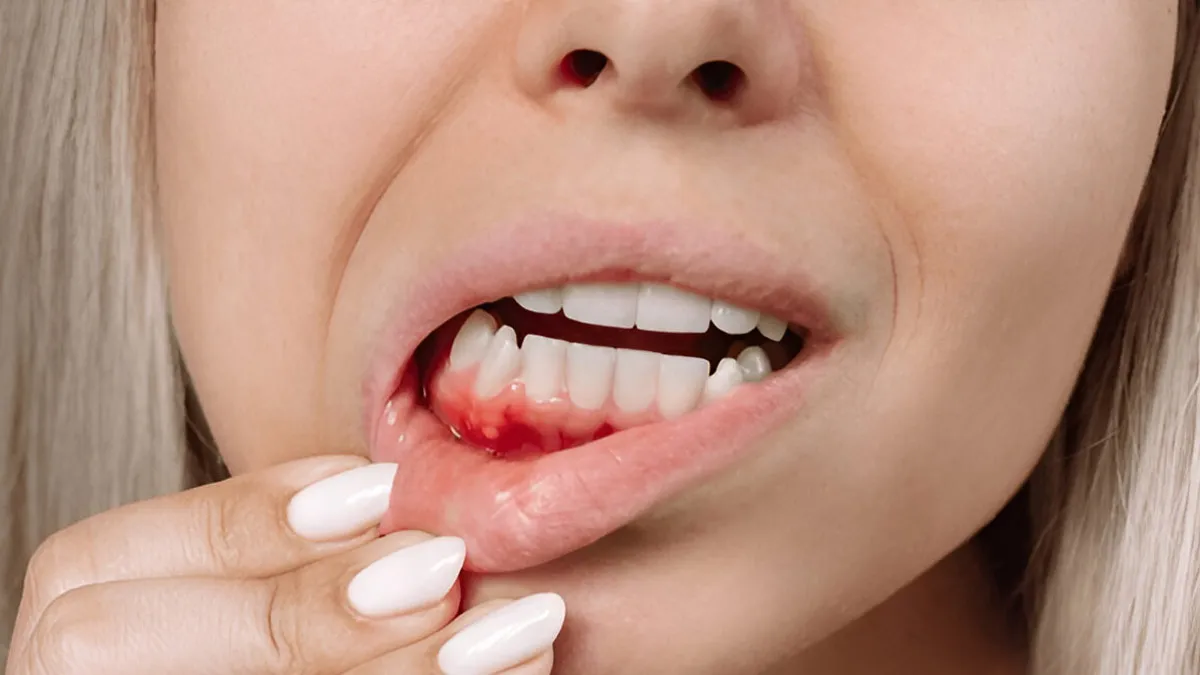
When menopause hits, your body takes a significant blow, especially due to the hormonal changes. From hot flashes to vaginal dryness to extreme mood swings, menopausal women go through a lot. But what many people don’t realise is that menopause can also take a toll on your oral health. It might seem unrelated at first, but experts say the hormonal shifts during this time can affect your gums, teeth, and overall oral hygiene more than you’d expect.
Table of Content:-
Speaking to the OnlyMyHealth team, Dr Shaily Sharma, Consultant Gynaecologist, Cloudnine Hospital, Faridabad, sheds light on this lesser-known aspect of menopause and shares whether bleeding gums could actually be a sign of it.
Also Read: Perimenopause: Supplements Women Should Start Adding To Their Diet
The Relationship Between Menopause And Oral Health

As we all know, menopause brings about various physical, emotional, and cognitive changes in women, primarily due to declining oestrogen levels.
According to Dr Sharma, this can significantly impact a woman’s oral health. "Oestrogen plays a crucial role in maintaining the health of bones and tissues, including the tissues in the mouth. With reduced oestrogen, there can be decreased saliva production, leading to dry mouth (xerostomia), which increases the risk of cavities and gum disease," she explains.
A 2013 study published in the Annals of Medical & Health Sciences Research established that hormonal changes during menopause can significantly impact a woman’s oral health, leading to dry mouth, gum problems, burning sensations, and a higher risk of gum disease and tooth loss. Researchers noted that the drop in oestrogen affects saliva production and bone health, both important for healthy teeth and gums.
According to recent research, a whopping 84% of women over 50 did not know that menopause could affect their oral health. 70% of menopausal women reported at least one new oral health symptom, like dry mouth or sensitive gums, yet only 2% had reported these issues to their dentist.
Can Bleeding Gums Be A Sign Of Menopause?

In light of evidence that hormonal changes during menopause do affect oral health, it's no surprise that bleeding gums can be a common symptom during menopause or perimenopause.
Dr Sharma says, “Due to the hormonal fluctuations, the gums may become more inflamed, tender, and sensitive, making them more likely to bleed during brushing or flossing. This condition is often referred to as menopausal gingivitis.”
“Even women who previously had good oral hygiene may start to notice bleeding gums during this time due to the heightened inflammatory response caused by hormonal imbalance,” she adds.
Menopause Symptoms That Appear In The Mouth
In addition to bleeding gums, menopausal women should also watch out for other oral symptoms. These may include:
- Dry mouth, which can cause difficulty in speaking or swallowing
- Bad breath
- Increased cavity risk
- Burning sensations in the mouth, known as burning mouth syndrome
- Discomfort or pain on the tongue or throughout the mouth
- Altered taste or a metallic taste sensation
- Increased tooth sensitivity or receding gums
Is Hormone Therapy Beneficial?
-1754044252673.jpg)
According to Dr Sharma, hormone therapy, particularly Oestrogen Replacement Therapy (ERT), often used to manage menopausal symptoms, may also benefit oral health. "Some studies suggest that ERT can help improve the condition of the gums and oral tissues by restoring hormonal balance, thus reducing inflammation and bone loss."
However, ERT is not suitable for everyone and should only be considered after consulting a healthcare provider, taking into account the individual’s medical history, risks, and benefits.
It is important to understand that while ERT may support gum health, it should not replace routine dental care and hygiene practices.
Also Read: When Menopause And Hypothyroidism Strike At The Same Time: How To Tell The Difference
Daily Oral Hygiene To Follow During Menopause
To manage gum issues during menopause, daily oral hygiene becomes even more critical. Some of the practices include:
- Women should brush their teeth twice a day with a soft-bristled toothbrush and fluoride toothpaste and floss at least once a day to remove plaque between teeth.
- Using an antimicrobial mouthwash can help reduce bacteria and inflammation.
- Staying hydrated is essential to combat dry mouth.
- Sugar-free chewing gum may stimulate saliva production.
- Regular dental checkups and professional cleanings are vital to detect early signs of gum disease.
- If dry mouth is a persistent problem, a dentist may recommend saliva substitutes or special oral care products.
Conclusion
While bleeding gums might not be the first symptom that comes to mind when thinking about menopause, hormonal changes during this period can impact oral health. From dry mouth to increased gum sensitivity and inflammation, menopause can manifest in various ways inside the mouth. Recognising these signs early and maintaining good oral hygiene, along with regular dental check-ups, can help manage symptoms effectively.
Also watch this video
How we keep this article up to date:
We work with experts and keep a close eye on the latest in health and wellness. Whenever there is a new research or helpful information, we update our articles with accurate and useful advice.
Current Version